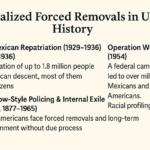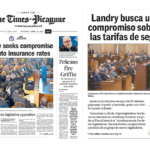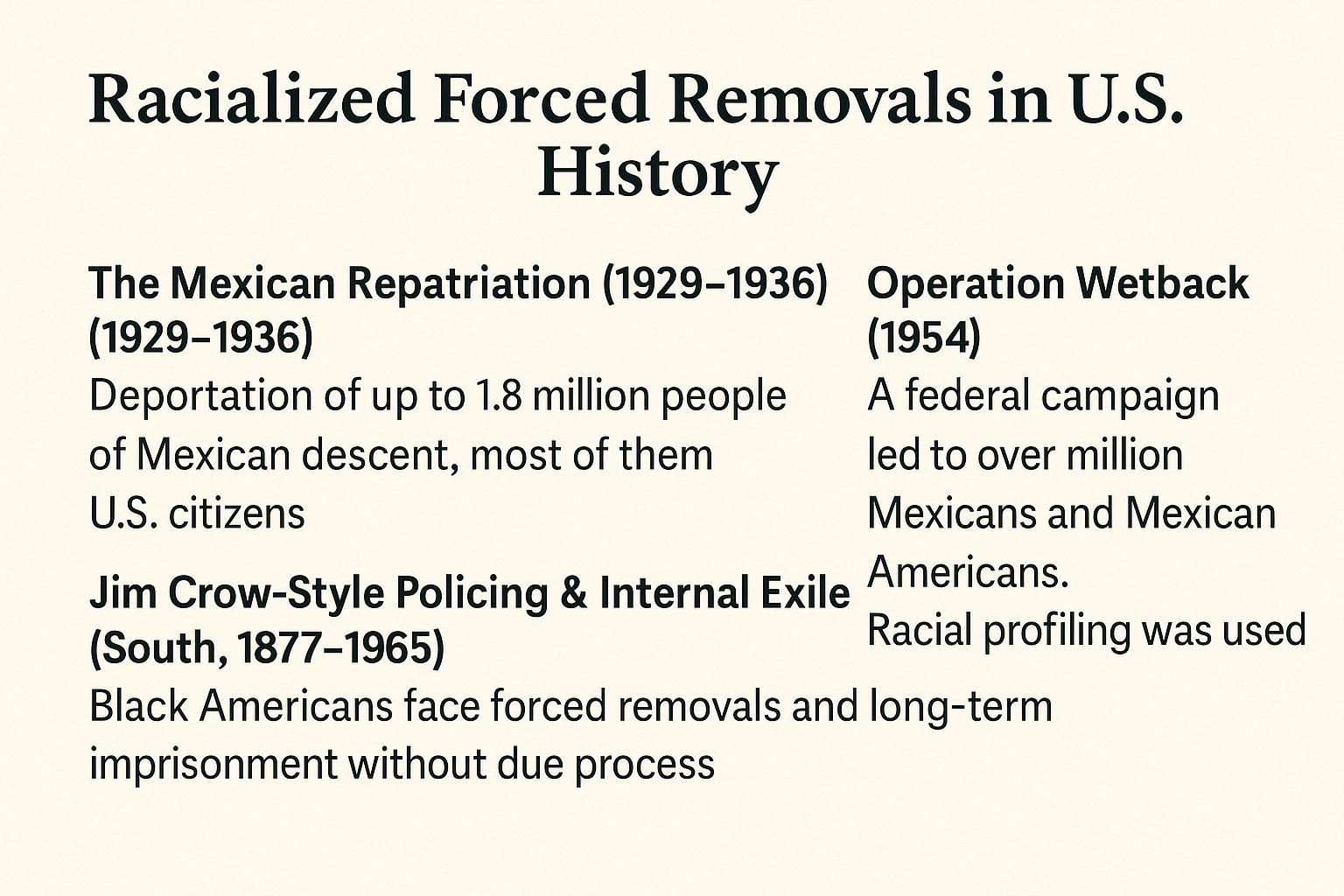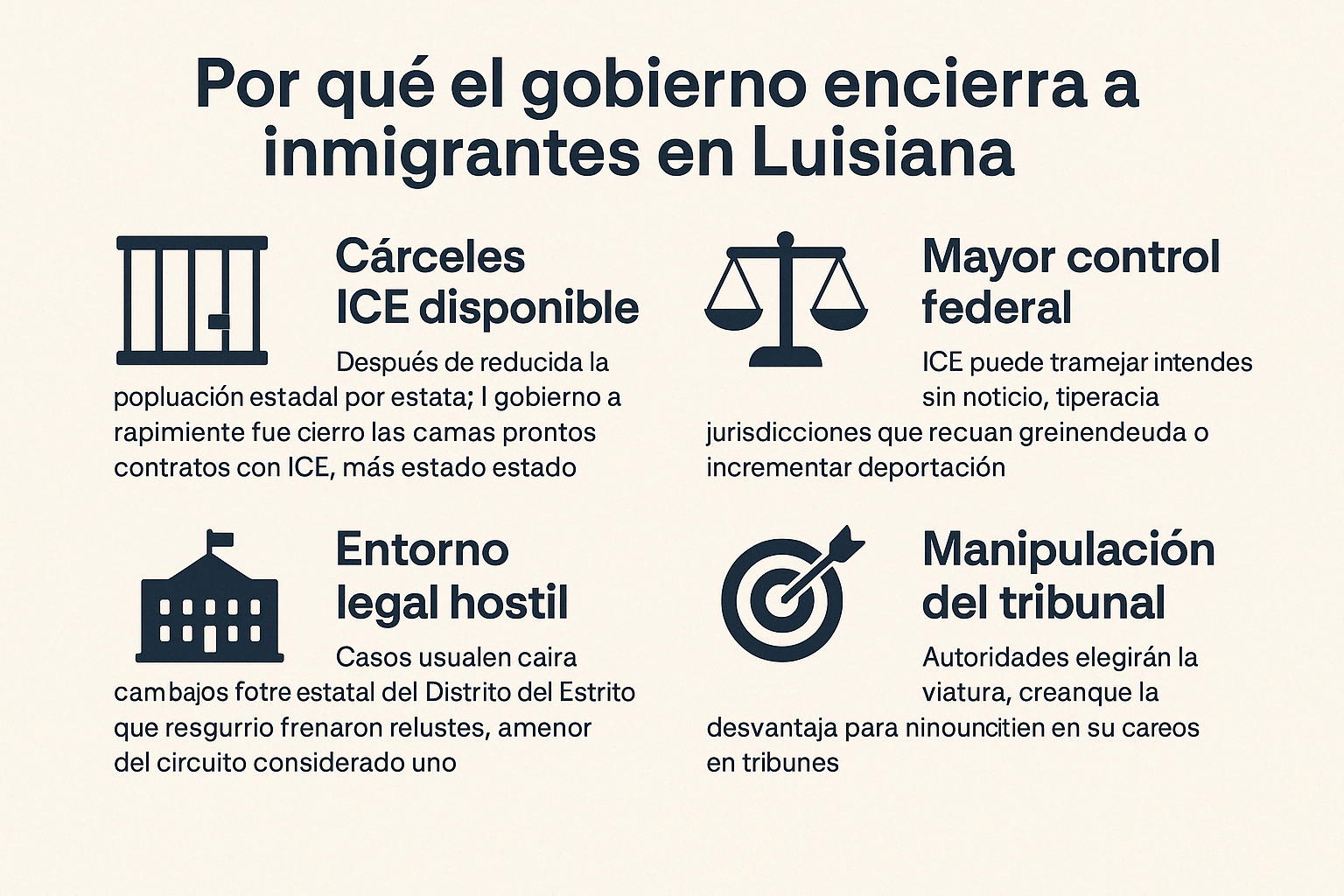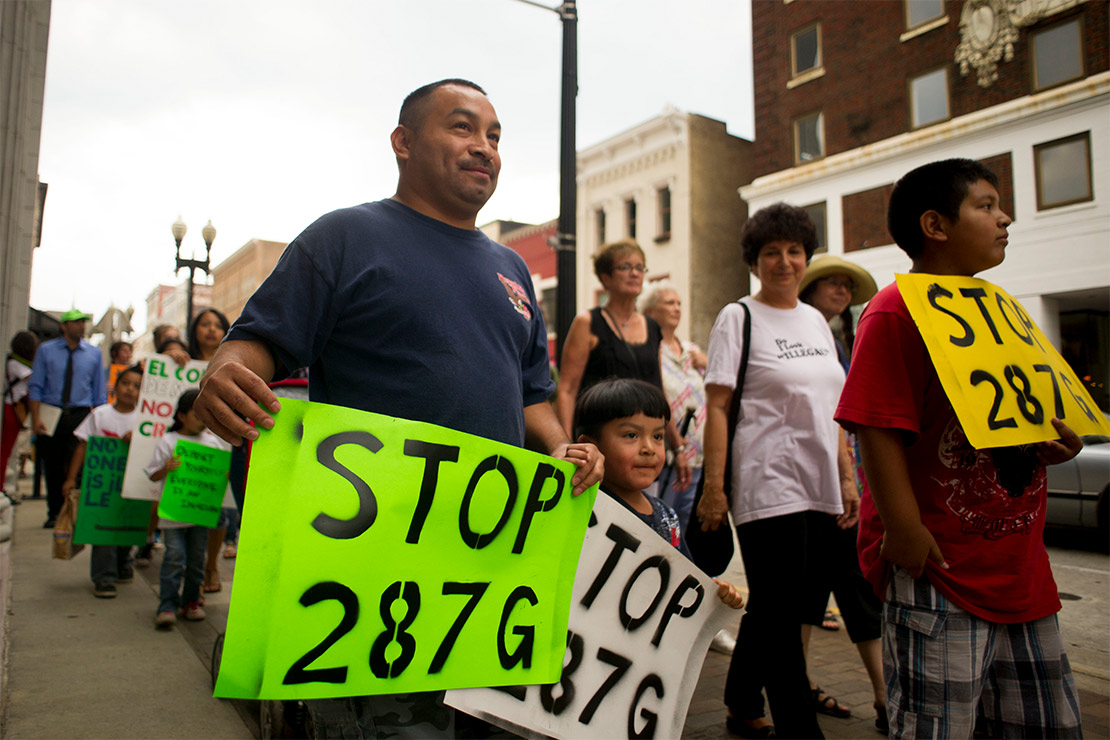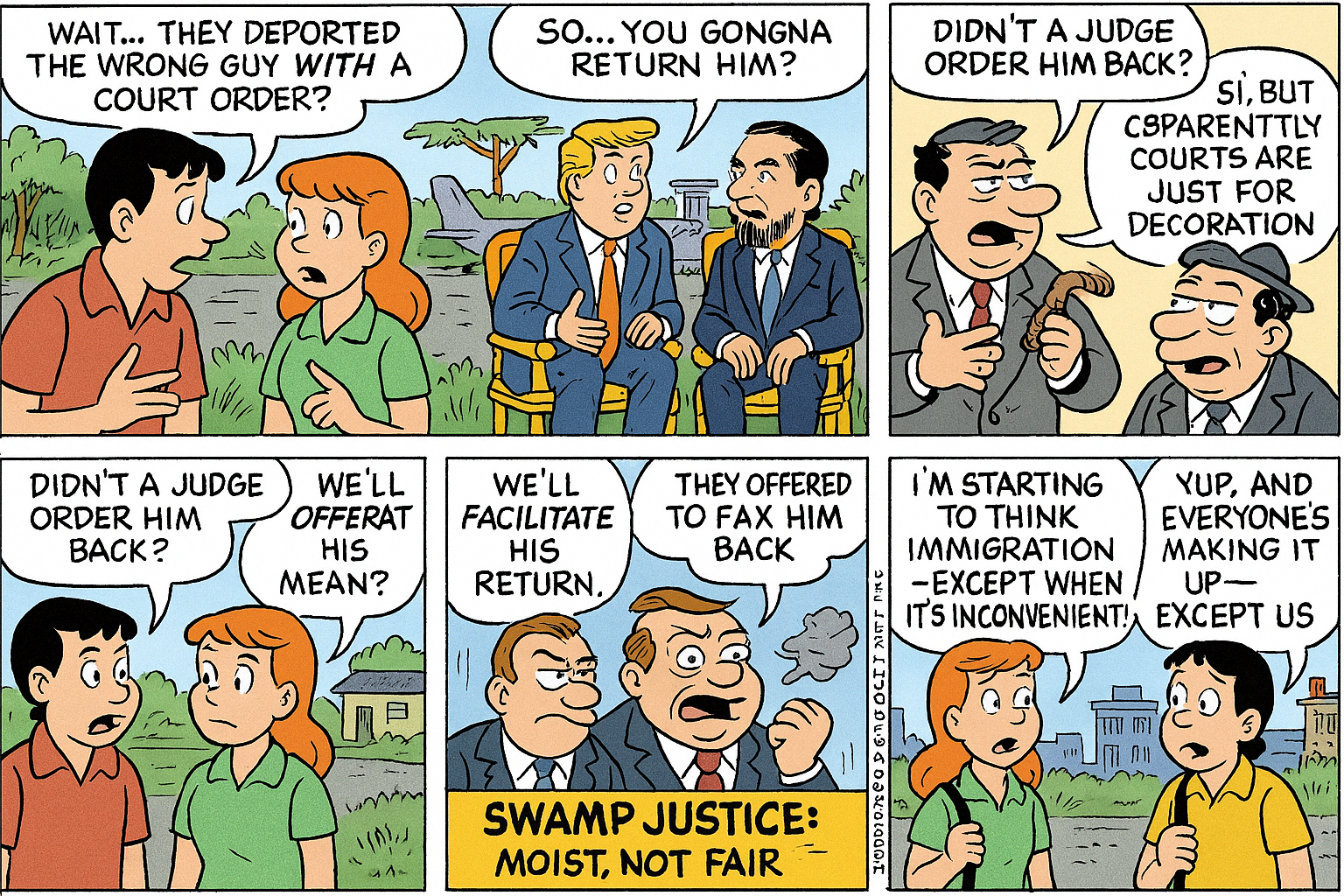Nadie puede ser obligado a responder por un delito grave o muy serio sin que antes un Gran Jurado lo acuse formalmente, excepto en casos que ocurran en las fuerzas armadas de tierra o mar, o en la Milicia, cuando estén en servicio activo durante una guerra o peligro público. Tampoco se puede juzgar a una persona dos veces por el mismo delito, ni obligarla a declarar en su contra en un caso criminal, ni quitarle su vida, libertad o propiedad sin seguir un proceso justo de ley. Además, no se puede tomar una propiedad privada para uso público sin dar una compensación justa.
Nadie puede ser castigado por un crimen grande sin un juicio justo con un grupo de personas (un jurado).
Ejemplo: Si alguien dice que rompiste una ventana a propósito, no pueden enviarte a la cárcel solo por decirlo. Primero, un grupo de personas (el jurado) tiene que escuchar los hechos y decidir si es verdad.
Esto no aplica para los soldados o personas en el ejército durante una guerra.
Ejemplo: Si alguien está en el ejército y no sigue órdenes durante una guerra, el ejército puede castigarlo sin necesitar un jurado.
Nadie puede ser castigado dos veces por el mismo crimen.
Ejemplo: Si te llevan a juicio porque dicen que robaste un chocolate y te declaran inocente, no pueden llevarte otra vez a juicio por ese mismo chocolate.
Nadie puede ser obligado a decir cosas que lo hagan parecer culpable.
Ejemplo: Si te acusan de romper una regla, no tienes que decir nada que pueda meterte en problemas si no quieres.
Nadie puede perder su vida, libertad o cosas sin un proceso justo.
Ejemplo: Si alguien dice que no deberías poder jugar fútbol, no pueden decidirlo sin una reunión o proceso justo donde expliquen el porqué.
Si el gobierno toma tus cosas para usarlas en algo público, deben pagarte de manera justa.
Ejemplo: Si la ciudad quiere construir un parque donde está tu casa, no pueden simplemente quitarte la casa. Tienen que pagarle a tu familia un precio justo para comprarla.
No person shall be held to answer for a capital, or otherwise infamous crime, unless on a presentment or indictment of a Grand Jury, except in cases arising in the land or naval forces, or in the Militia, when in actual service in time of War or public danger; nor shall any person be subject for the same offence to be twice put in jeopardy of life or limb; nor shall be compelled in any criminal case to be a witness against himself, nor be deprived of life, liberty, or property, without due process of law; nor shall private property be taken for public use, without just compensation.
No one can be punished for a big crime without a proper trial by a group of people (a jury).
Example: If someone says you broke a window on purpose, they can’t just send you to jail. First, a group of people (the jury) needs to hear the facts and decide if it’s true.
This doesn’t apply to soldiers or people in the military during a war.
Example: If someone is in the army and doesn’t follow orders during a war, they might be punished directly by the military without needing a jury.
No one can be punished twice for the same crime.
Example: If you are put on trial for stealing a candy bar and found innocent, no one can take you to court again for the same candy bar.
No one can be forced to say things that would make them look guilty.
Example: If you’re accused of breaking a rule, you don’t have to say anything that might get you in trouble if you don’t want to.
No one can have their life, freedom, or things taken away without a fair process.
Example: If someone says you shouldn’t be allowed to play soccer anymore, they can’t just decide that. There has to be a fair meeting or process to explain why.
If the government takes your things for public use, they must pay you fairly.
Example: If the city wants to build a park where your house is, they can’t just take your house. They have to pay your family money to buy it.



